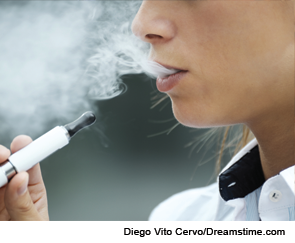Dr. Jackler believes that otolaryngologists, as members of a specialty intimately familiar with the deleterious health impact of smoking, are in prime position to advocate for the regulation of e-cigarettes. In addition to cancers of the mouth, throat, larynx, and pharynx, “smokers tend to get laryngitis, [and] smokers tend to have sinu-nasal conditions, chronic leukoplakia, and sores that don’t heal,” he added. “But also, if you’re doing surgery and someone’s a smoker, several things happen. One, wounds don’t heal as well. Two, they have limited lung capacity, so you have more complications after surgery in people who are smokers, or more instances of pneumonia, more instances of bronchospasm, and things like that. Smoking is a vaso-constrictant, and so if you’re doing a reconstruction flap, for example, flaps have a much higher rate of failure due to insufficient blood supply in smokers than they do in nonsmokers.”
Explore This Issue
December 2014Dr. Jackler urges his colleagues to get involved on local and national levels to push for taxation of e-cigarettes, as well as their regulation, and to push for national drugstore chains to follow the lead of CVS, which banned the sale of tobacco products, including e-cigarettes. In fact, on the CVS website, the company noted research that showed e-cigarettes did little to curb tobacco-combustible smoking.
Furthermore, Dr. Jackler rejects the arguments of those who say regulation of e-cigarettes is a slippery slope because the devices have not yet been proven to have dangers. “I do not believe it’s a slippery slope, because there is but one leading cause of death in America,” Dr. Jackler said. “You need to eat, but you don’t need to smoke. Tobacco products are the only consumer products that are deadly when used as directed. They’re very different and so that’s what e-cigs are doing now, and it’s concerning a lot of us in public health.”
Richard Quinn is a freelance medical writer based in New Jersey.
